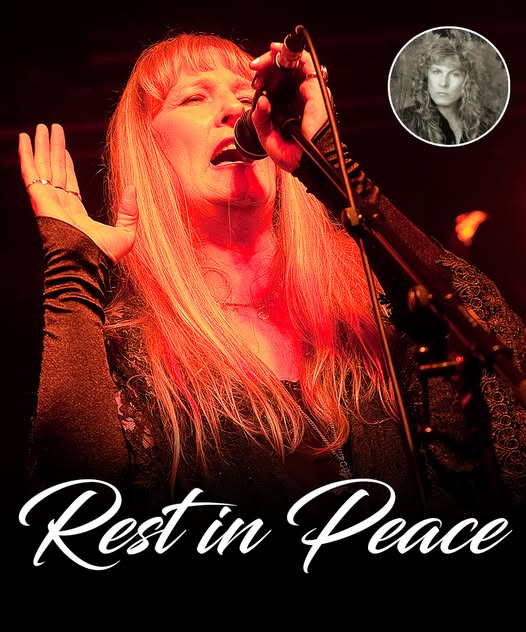The rock world is mourning the loss of a true original, an artist whose voice and courage inspired countless fans and fellow musicians alike.
Marcie Free — the powerhouse vocalist behind iconic bands such as King Kobra, Signal, and Unruly Child — has passed away at the age of 71, leaving behind a legacy that spans decades and genres. Her life and career were marked not only by extraordinary talent but also by resilience, courage, and an unwavering commitment to authenticity.
A marvel to behold
Her passing was confirmed on Friday by longtime friend and drummer Jay Schellen, who shared the stage and a deep friendship with Free in Unruly Child. As of now, no official cause of death has been released.
Schellen’s tribute captured the depth of their bond:
“Marcie was a marvel to behold. A voice that had no limits and no equal, a truly singular talent and one of the most open and beautiful souls I have ever known,” he wrote in a heartfelt Facebook post. “I’m gutted and can’t say much more.”
He continued, reflecting on the impact Free had on those around her:
“This is heartbreaking. Bruce, Guy, Larry — all of whom I hold dear as family — are shattered for the loss of our Marcie. We began UC together in 1992 and continued our friendship and music-making throughout these years to this day. Marcie was always an Angel — now you have your wings.”
A voice like no other
Born Mark Edward Free in South Bend, Indiana, in 1954, Marcie’s journey into music began at a young age. By 19, she was already performing, driven by an unrelenting passion for rock music. After moving from Michigan to Las Vegas, and eventually to Los Angeles, Free carved out a space for herself in a highly competitive industry.
Her career took a significant turn in 1983, when she met drummer Carmine Appice, formerly of Ozzy Osbourne’s band. Together, they formed King Kobra, signing with Capitol Records a year later. Albums such as Ready to Strike (1985) and Thrill of a Lifetime (1986) showcased Free’s soaring vocal range, technical precision, and emotional depth — qualities that distinguished her in the melodic rock scene.
In 1987, Free joined Signal, a short-lived but beloved project that released the album Loud and Clear. Though it received limited promotion at the time, it has since become a cult favorite among fans of AOR and ’80s rock.
By 1990, Free had found her true creative home with Unruly Child, collaborating with guitarist Bruce Gowdy and keyboardist Guy Allison. Their self-titled debut in 1992 cemented Free’s reputation as one of rock’s premier vocal storytellers, blending technical skill with heartfelt expression.
A brave transition
After the release of Unruly Child’s debut album, Free made a deeply personal and courageous decision. In 1993, she publicly came out as transgender, adopting the name Marcie Michelle Free.
While this step was liberating, it also brought challenges. Free later reflected, “My whole musical world quickly fell apart.” Many in the industry distanced themselves, and the momentum of her band stalled. Yet, she remained steadfast in her truth. In interviews, Free described transitioning as a matter of survival — “a decision between life and death.” She explained that had she continued living as Mark, her life would have been at risk.
Stepping away from the music industry in the mid-1990s, Free returned to Michigan to be closer to family, embracing what she called “life as a normal person does every day.” During this period, she battled alcoholism but found sobriety around 2008, crediting her faith and “close personal relationship with God” for guiding her through recovery and helping her rebuild her life.
Reclaiming her stage
In 2009, Free reunited with Gowdy and Allison to relaunch Unruly Child, producing several albums over the next decade, including Worlds Collide (2010) and Down the Rabbit Hole (2014).
Despite the hardships she faced, Free’s fans remained loyal. Her journey — from the glam metal stages of the ’80s to her courageous personal transition and eventual return to music — solidified her status as a quiet legend, respected by those who understood her story.
Tributes poured in across social media. Fans wrote:
“One of my all-time favorite singers to work with. Such an incredible loss.”
“Absolutely without question one of my biggest vocal influences… Just an incredible person. My heart breaks personally and for you. Truly a loss for humanity.”
Music journalist Andrew McNeice of Melodic Rock shared his grief:
“It’s the kind of news you dread, especially in the middle of the night… But my friend Marcie Free has left us, and I’m heartbroken. I’ll have more to say later. RIP the voice of AOR.”
Reddit users recalled her electrifying stage presence:
“OMG! She did an incredible job on Ready to Strike. I saw King Kobra in San Diego in the ’80s. There were only about 100 people in the club, but they gave us an arena show. Sorry to hear about her passing.”
A lasting legacy
Free often cited Aretha Franklin as one of her greatest inspirations, thanking the soul legend in her album liner notes. Her own voice, raw yet meticulously controlled, carried echoes of classic rock, soul, and profound emotion.
Jay Schellen’s words remain a fitting tribute: “Marcie was a marvel to behold.” For anyone who heard her sing, that truth is eternal.
Free leaves behind a legacy defined by both power and vulnerability — a voice unbounded by limits and a spirit that defied every label. Her artistry, courage, and authenticity remain an inspiration. Marcie Free reminded the world that being true to oneself is the purest form of beauty, and her contributions to music will resonate for generations to come.
